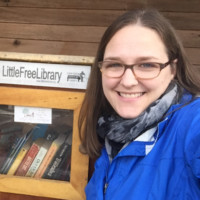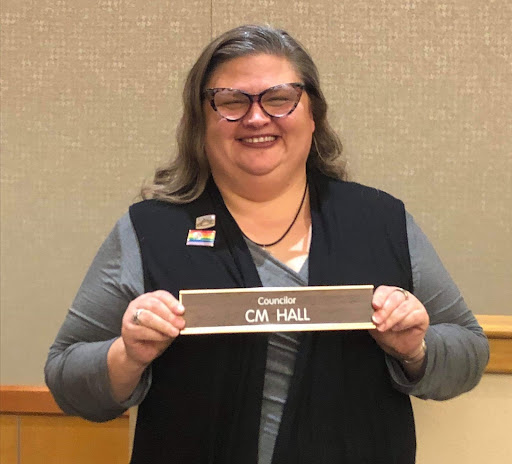Written by Justin Truong, WOU SPO communications intern
“A new language has been born in the Northwest”
-OPB writer, Sage Van Wing

The DeafBlind Interpreting National and Resource Center (DBI) at Western Oregon University was recently awarded a five-year, $2.1 million grant from the US Department of Education to train interpreters. DBI is a resource center that increases communication access for people who are DeafBlind. DBI trains interpreters to effectively interpret using protactile communication. On a basic level, protactile communication uses touch for the purposes of communicating. This grant supports DBI’s work to increase the number of qualified protactile language interpreters to effectively interpret communication exchanges with DeafBlind individuals. You can find more information about the grant here. Thanks to this five-year grant, DBI is able to continue the work it started in 2017.
I had the pleasure of interviewing the DBI co-directors, CM Hall and Heather Holmes. CM Hall previously worked for the Western Region Interpreter Education Center at WOU as the project coordinator. She teaches Deafblind Interpreting in WOU’s interpreting studies program and is a past co-chair of the National Task Force on DeafBlind Interpreting. Heather Holmes’s responsibilities consist of developing the center’s online materials and courses, managing the national online resource repository, and providing technical assistance to stakeholders across the country. They both were on other grant-funded projects at WOU. Western has a long track record of success of having been awarded this interpreter education and training grant since the 1970’s.

CM says “DBI has a new name for this new grant: PLI – The Protactile Language Interpreting National Education Center. PLI will train Deafblind educators in immersive, intensive protactile language sessions, and also train interpreters via modules, and some face-to face, or rather, ‘hand-to-hand’ protactile language training.” DBI has narrowed its focus to training interpreters where there are critical masses of DeafBlind individuals around the country, such as in California, Louisiana, Maine, Washington, North Carolina, New York, New Mexico, and Texas. For people in states not listed above, there will be opportunities for them to engage online.

DBI recently received national attention about its work earlier this year when National Public Radio picked up news of their project and broadcast a story about it, sharing it on social media where it received over fifty thousand likes, countless shares, and hundreds of comments. The story focuses on a new language born here in the Pacific Northwest, created by a group of DeafBlind people who use touch to communicate. You can read the story here.
 Portal
Portal